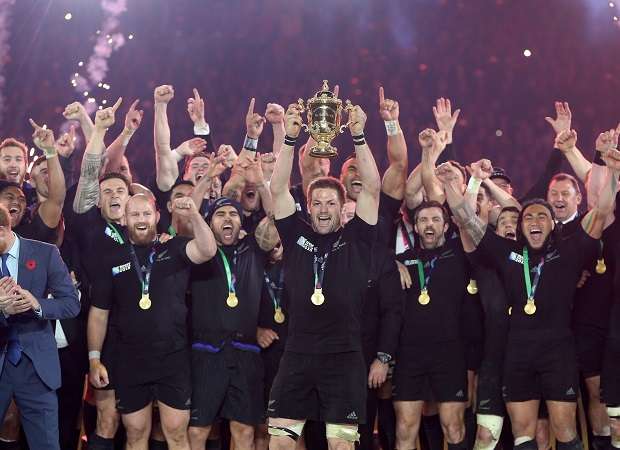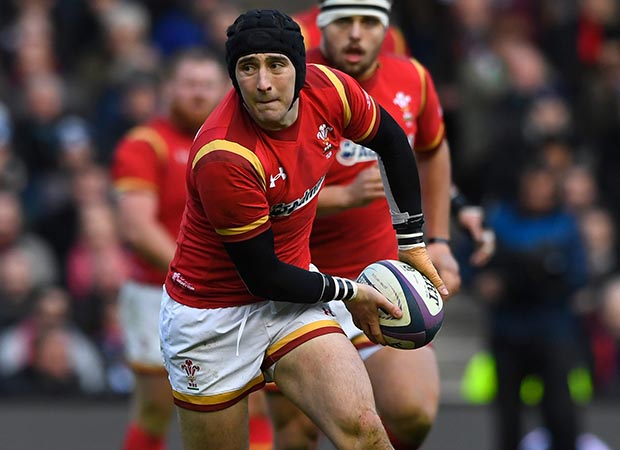
 The trouble with New Zealand‘s protests that they are being victimised following the rolling footage of head shots in last weekend’s second Ireland versus New Zealand Test in Dublin is that no-one believes them. The main reason for the credibility gap when New Zealand coaches like Steve Hansen attempt to present the All Blacks as a bunch of choirboys is that they have too much ‘previous’ to be taken seriously.
The trouble with New Zealand‘s protests that they are being victimised following the rolling footage of head shots in last weekend’s second Ireland versus New Zealand Test in Dublin is that no-one believes them. The main reason for the credibility gap when New Zealand coaches like Steve Hansen attempt to present the All Blacks as a bunch of choirboys is that they have too much ‘previous’ to be taken seriously.
The exclusions to that rule are the disproportionate number of trolls on New Zealand internet sites for whom the All Blacks can do no wrong, whose main arguments are that it’s a man’s game, and that the Irish have supplanted the English as world rugby‘s biggest whingers. The other exclusion appears to be World Rugby‘s international referees manager, Alain Rolland.
What none of this can mask is that outside New Zealand there is a growing sense of anger that where match officials and disciplinary panels are concerned there is one rule for the All Blacks and another for the rest.
This sense of the rugby authorities adopting a sycophantic attitude towards the All Blacks was reinforced this week when Rolland decided to intervene in the post-match furore by undermining the match referee in charge, Jaco Peyper.
Hansen announced last week that Rolland had told him that the yellow card given to the New Zealand scrum-half Aaron Smith for being offside at a ruck was mistaken. It is an unfortunate precedent, and in my view a serious error of judgement, irrespective of whether the decision to send Smith to the sin-bin for offside was right or wrong.
In the interests of consistency Rolland is now bound to pronounce on whether he considers every yellow card decision in Test rugby to be the correct call. What, for pity’s sake, makes an All Black yellow card more or less important than any other?
The problem is that this sort of fawning by Rolland only hardens the perception that New Zealand enjoy favoured status among the officiating heirarchy at World Rugby. This is disputed by Hansen, who immediately jumped at the get-out clause offered by Rolland.
Hansen said that while the All Blacks accepted the yellow card for the high hit by Malakai Fekitoa on Simon Zebo – which was big of him given that it carried a red card tariff – he was happy that the Sam Cane collision which saw Robbie Henshaw carted off was accidental.
What was not mentioned by the World Rugby judiciary panel that exonerated Cane, or by Hansen, was that before the collision the Irish centre – who had been hugely effective for Ireland in their landmark win over New Zealand in Chicago – had spun out of a no-arms tackle by New Zealand captain Kieran Read.
Instead, Hansen whose side conceded 14 penalties to four, refuted that his side had adopted an over-physical approach which included targeting their Irish opponents with chest high tackles, some of which were bound to deflect the shoulder upwards into the neck and head.
Afterwards a rattled Hansen responded to Irish media questions said: “Do you want me to tell you we’re a dirty side or something?”
What he said next was familiar to most people who have watched how New Zealand handle disciplinary matters. Hansen started with a minor concession, and then played the card that his team were as much sinned against as sinners.
“Obviously the discipline’s got to improve. But there were (Irish) neck rolls and all sorts of things that were missed, which we could sit here and complain about. It’s a tough game to ref. Refs are human and make mistakes. You just hope they make them consistently.”
Hansen can rest assured that international match officials and disciplinary panels do make mistakes consistently in two respects.
The first is that they are uncannily bad at detecting New Zealand foul play, and punishing it. This is reflected in the extraordinary fact that New Zealand, a team known not just for their rugby prowess but also for an uncompromising attitude that sometimes crosses the win-at-all-costs line, have not had a player sent off in a Test since Colin Meads in 1967. The other is that when the All Blacks habitually kill the ball when opposition attacks get within five to ten metres from their line – adhering staunchly to the principle that it is better to concede a penalty than five or seven points – they invariably escape losing players to yellow cards.
The perception outside New Zealand is that All Black players also have an unrivalled ability to escape serious disciplinary sanctions when they do transgress. If Fekitoa is the latest example, the most celebrated case was the spear-tackle on Brian O’Discoll by Tana Umaga and Keven Mealamu which put the Lions captain out of the 2005 tour in the opening exchanges of the first Test.
The legacy of the incident left a bitter taste which still lingers in the Northern Hemisphere. The disciplinary process was a sham, and the way New Zealand rugby – whether All Black coaches, press or public – closed ranks in denial of a clear off-the-ball mugging did it no favours. I can still see the New Zealand top table of coaches, Graham Henry, Wayne Smith and Hansen doing their “see no evil, hear no evil, speak no evil” three wise monkeys impression after the game when asked about the O’Driscoll incident. They simply didn’t see it – and when they did, later on, they thought that nothing Tana or Kevvy did was worthy of censure.
The All Black approach in Dublin, and the cries of foul play in its wake, are a clear message to the Lions that this summer they will only win if they are absolutely implacable on and off the field.



























You must be logged in to post a comment Login